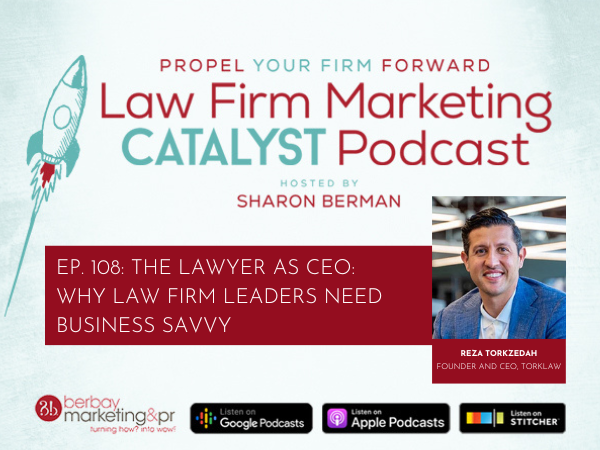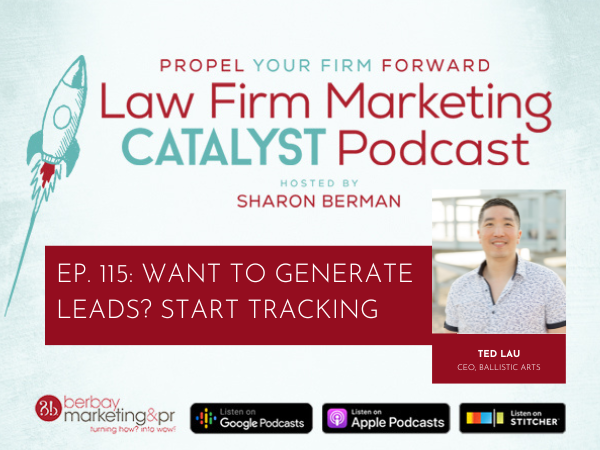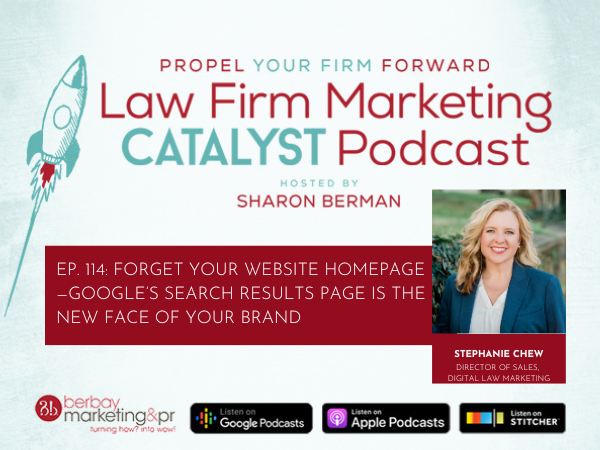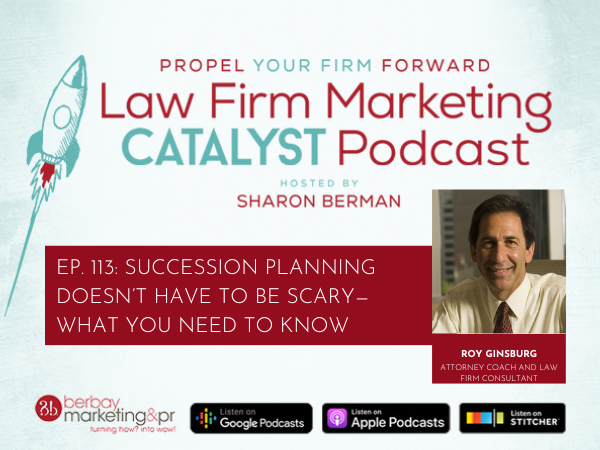Episode 108
What you’ll learn in this episode:
- Why law firm owners need to think of themselves as CEOs
- The two biggest mistakes law firm owners make that prevent their firms from growing
- Why law firms need to scale to stay competitive
- How Reza’s past mistakes helped him become a better leader
- Why knowing your firm’s vision and core values is the foundation of success
About Reza Torkzadeh:
Reza Torkzadeh is a nationally recognized plaintiff’s trial attorney who has dedicated his professional career to the pursuit of justice by exclusively representing victims in personal injury and wrongful death cases. Reza has handled numerous high-profile cases in both state and federal courts, and has served in leadership roles in litigation at the national level. He has been featured for legal commentary by the Wall Street Journal, Los Angeles Times, Los Angeles Daily News, Los Angeles Daily Journal, San Francisco Daily Journal, New York Daily News, Metro News, Christian Science Monitor, KUSI TV, and many other news outlets and publications.
Through Reza’s leadership, vision and passion for representing the people, TorkLaw has established offices nationwide, in cities throughout California, Arizona, Georgia, Illinois, Nevada, Texas, Washington State, and Washington, D.C.
Reza has successfully represented thousands of clients and after more than a decade of practicing law, “Representing the People” continues to be the core foundation and guiding principle of his practice and the firm.
Reza is a frequently invited guest speaker and has lectured across the country on the practice of law and the civil justice system. He is a proud Honorary Board Member of the Los Angeles Trial Lawyers Charity, an active member of the Consumer Attorneys Association of Los Angeles, and President’s Club Member of the Consumer Attorneys of California.
Additional Resources:
Transcript:
Whether it’s stigma or tradition, law firm owners typically don’t call themselves CEOs. But according to Reza Torkzadeh, founder and—you guessed it—CEO of TorkLaw, the most successful law firm owners are the ones that run their firms like any other Fortune 500 company. Reza joined the Law Firm Marketing Catalyst Podcast to talk about the importance of creating a strong team and culture; why law firms are really in the business of customer service; and why any firm that wants to succeed the long term needs to scale. Read the episode transcript here.
Sharon: Welcome to the Law Firm Marketing Catalyst Podcast. Today, my guest is Reza Torkzadeh. Reza has a successful personal injury firm located in Orange County, California. He recently wrote a book, “The Lawyer as CEO,” which we will hear all about today. Reza, welcome to the program.
Reza: Hi, Sharon. Thanks so much. I appreciate the opportunity and for having me on.
Sharon: It’s great to have you. Can you tell us about your career path? How did you end up where you are right now?
Reza: Oh boy! Well, throughout high school and growing up, I never thought of becoming a lawyer. It was never a career path I envisioned. I originally wanted to go to medical school and be a doctor. That was my study during undergraduate. I worked a summer as an EMT driving around in an ambulance downtown. I was doing all the things you would do if you are going to medical school and you are interested in that career.
In my last year in college, I realized very quickly that the lifestyle of a doctor is one where you need to absolutely love what you’re doing. My grandfather is a doctor. My uncle is a doctor. We’ve got doctors in the family, and I didn’t feel like it was something I loved and was passionate enough about to put in those long hours and to be on call and to make those sacrifices. But I knew I loved people, and I knew I wanted to make a difference in people’s lives. That’s what was driving my initial desire to go to medical school. I wanted to meet patients; I wanted to help patients and treat them. So, that was still there.
The next natural option for me was going to law school. I didn’t go to law school with the intention of practicing. I went to law school with the intention of using my law degree in some setting, in some business. During law school I tried a few different areas of the law. I worked at the district attorney’s office. I did transactional work. I did international business as a lawyer. After every position I knew what I didn’t want to do.
It was right around my third year that I discovered plaintiff’s work, representing individuals on a contingency-fee basis, where if you don’t win, you don’t get paid. That was very attractive to me. How great to be able to provide legal representation to those who couldn’t afford a lawyer and to make a meaningful change in their lives? To cut it short for this interview and podcast, that’s how I ended up doing plaintiff’s work, and I never looked back.
Sharon: That’s interesting. Most lawyers have wanted to be lawyers since kindergarten, so that’s interesting. Tell us about your practice today.
Reza: We’re exclusively representing plaintiffs. We never represent the defense or insurance carriers, and it’s 100% personal injury. We handle a wide spectrum of PI cases. The majority of our cases now, 10 years into it, are catastrophic injury or wrongful death cases, and we handle them nationwide. We’ve got an office presence and staff in about nine states right now.
Sharon: Wow! Had you been thinking about writing your book, “The Lawyer as CEO,” for a long time? Did it come to you because of your entrepreneurial background? What was it?
Reza: A great question. I wrote it almost as a way for me to reflect on the last 10 years of the law firm. I had a lot of growing pains, a lot of learning the hard way and experiences where I almost walked away from the practice altogether. I thought to myself, “What would I have wanted if I was first starting out my practice?” I would want a book. I would want to know examples. Every industry has so much support for how to do things, and yet the legal industry doesn’t. They don’t teach you how to be a business owner in law school. They don’t teach you how important the business side is. We are a profession. We’re lawyers, so we have to act accordingly; however, every law firm is still a business. You’re not going to do anybody any good if you’re not running it like a business should be run.
When I looked back on the last 10 years of starting and running TorkLaw, I thought about what I would have wanted on day one. It was really an exercise in vulnerability for me to write the book. I shared many things in there that I think are new to the legal world. We’re so used to hearing how wonderful all the lawyers are and their great results, and we’re not used to seeing the reality of what it takes to start a law firm. So, for me, it was an exercise in putting my thoughts and my journey down on paper.
It was also a way where I felt I could make a meaningful difference in the lives of all lawyers, not just new and young lawyers. Not a day goes by, Sharon, that I don’t get a random email or message from a lawyer that says, “Wow! You really inspired me to take action.” That was the goal from the beginning: to put this out there and share my experiences, my ups and downs, my failures and my successes, and then ultimately my realization that in order to be an effective business owner, in order to be an effective CEO, you need to take a look at yourself. You need to look in the mirror and come to the conclusion that the buck stops with you as a business owner.
Sharon: I guess that’s why the title of the book stopped me. As someone who spent their professional career marketing lawyers, it’s such a different thing than being an entrepreneur. How did the book change how you viewed marketing or client development?
Reza: Great question. A question I asked myself before I wrote the book was if I were a CEO of a Fortune 500, publicly traded company, how long would I have lasted in that role? My response was, “Not very long.” I would have been kicked out very quickly. I think as business owners, that’s a great way to measure your performance and your accountabilities. When you’re at the top and you’re leading an organization of 50, 60 or 100 employees, whatever it might be—it might be five employees—it’s hard for those folks to be as transparent as you need them to be to hold you accountable. So, I often ask myself the question, “If I were a CEO of a Fortune 500 company, what would my board of directors say to me?”
You’re absolutely right; I’ve been practicing for 15 years, and I’ve never heard a lawyer-business owner call themselves a CEO. Whether it’s stigma or tradition or whatever it might be, I think ultimately you have to decide whether you want to be the CEO of your company or not. Every organization, if it’s meant to thrive, if it’s meant to scale and grow and do meaningful work and make a change in the community, needs an effective CEO.
Sharon: Maybe a lawyer wants to be successful but doesn’t want to be a CEO. They want to focus on developing clients and marketing, and they say, “I’ll leave the CEO to other people,” like you. What do you think about that?
Reza: Absolutely. There’s absolutely nothing wrong with it. It’s every person’s own path. They get to choose for themselves. I chose this one because I am more drawn to the business side. I’m more drawn to marketing. I’m more drawn to scaling and the big picture. I’ve been fortunate enough to find people on my team who are much better lawyers than I am, much better at doing the tasks than I am. So, it works. I don’t think there’s a right or wrong answer for a lawyer who says, “Look, I just love lawyering, and that’s what I want to do for the rest of my life.” I don’t think there’s anything wrong with that.
Sharon: Very early in my own career working with lawyers—I can’t even remember who it was—I heard a managing partner or a lawyer say they thought scaling a law firm wasn’t feasible. What are your thoughts about that?
Reza: I disagree. At our firm, we say we’re a customer service business that happens to practice law. We’re in competition for the consumer. The consumer is used to a certain level of customer service and experience that you get at Apple or Amazon or Walmart or Starbucks or FedEx and these national brands we all recognize. I think where lawyers and law firms have fallen behind is this element of customer service and customer experience.
I think you can absolutely scale. It’s no different than providing a product. You’re providing a service, and if you’re providing a good enough experience for your clients, there’s no reason why you can’t replicate that in other markets, in other practice areas. You have to have the right people. You have to have the right tools, the right infrastructure, of course, but if you’ve discovered a formula that’s successful in your own law firm, the only thing that’s stopping you from scaling is yourself. I think any CEO or business owner will tell you that if you’re not growing, you’re going in the wrong direction.
When I started practicing law 15 years ago, it was competitive. The personal injury industry has always been competitive, but not as fierce as it is today. There wasn’t the amount of dollars being spent on marketing as there is today. Now, you’ve got hedge funds and banks and venture capital firms that are dumping money into law firm marketing. In order to survive the next 10, 15, 20, 25 years, and in order to be competitive with these behemoths that are spending hundreds of millions of dollars a year on marketing, in a way you have to scale. You have to grow to stay competitive.
Sharon: Did the book change how you look at clients, how you market or how you develop your people?
Reza: Absolutely. The exercise of the book was itself a reflection. Our lives are so crazy. Oftentimes I describe it as being inside of a tornado. Writing the book allowed me to quiet everything down and put on paper what’s in my mind. It made me focus on the things we were doing. If I’m talking about customer service in the book, it made me focus on, “O.K., what are we doing step by step, A through Z, for customer service?”
It’s the same thing for marketing. One of the biggest realizations for me—and I included this in the book—was ego-play marketing, which is seeing your face on a billboard or on TV or hearing it on the radio. Just because you see it doesn’t necessarily mean it’s effective and that there’s a positive ROI on it. It made me self-reflect, to go back and dig deeper. Look, I don’t have all the answers and I continue to make mistakes, but an important takeaway is that you can always improve. You can always do better; you can always change. We’re not the same law firm we were five years ago, and I can promise you something: we’re not going to be the same law firm five years from now, either. We’re always retooling; we’re always changing. We don’t have all the answers, but I think there’s always a better way to do things.
Sharon: Do you think there will be a sequel, a third edition?
Reza: I don’t know. Not now. This one took me about 18 months to do. It was a massive labor of love. I wanted to create a book that was super easy to read. You could read it in one day. So, I spent a majority of that 18 months cutting back what was in the book and making it as short as possible. I wanted as many people as possible to pick it up and finish it and read it more than once. As of right now, no sequel. This is it. The response has been incredible, and this is not a money maker for me. 100% of the proceeds are donated to charity.
Sharon: Writing the book probably brought to the fore a lot of things that lawyers don’t do or mistakes they make. What are the top two things that lawyers should do differently or the mistakes they’re making? What do you think?
Reza: For law firm owners, I will tell you the two biggest mistakes I see—which I made also—is, number one, not focusing on culture, vision and values. That’s the first one. Had we not had those things in place, in writing, engrained in everything we do, we would not have been able to scale effectively. Number two is not having a process or procedure for recruitment and retention of teammates. Both mistakes we made and paid for dearly.
I think the most common way we hire is that you put up a job post, you get back hundreds of résumés and you can’t tell the difference between one or the other, and then you just pick one that might have some experience or might have worked for a competitor. You bring them in for an interview. You interview them, everyone interviews great, and then you hire them. Six months in, you realize this is the wrong person. This person sucks. I think doing that type of blind hiring is a mistake. I think desperation hiring is a mistake, and not having the culture be part of it and not having the right people is a guaranteed recipe for disaster.
Sharon: Do you think if somebody had said that to you when you were just opening your doors, you would have been able to say, “Oh yeah, I didn’t do it that way the first time,” or “I don’t know what my culture is”?
Reza: Yeah, I’ll tell you. This was my experience. It was my own ego for the longest time. I thought we had the best culture. I thought this was the best place to work. That was in my head; it wasn’t reality. I was dealing with office drama and turmoil. It was a toxic environment, and I kept telling myself, “This is the greatest place to work.” It really wasn’t. If someone early on, in year one, told me to focus on culture and a method to distinguish the players you’re bringing onto your team, I don’t know if I would have taken that advice. I learned it the hard way.
Sharon: I’m not thinking about it as advice. I’m thinking back on when I didn’t have business experience, and professors were asking me, “What about this, that and the other thing,” in a business environment. How would people know what their culture is? You could ask. You could say, “My culture is to have the best place to work.” Who knocked you on the side of the head to say it isn’t the best place? I’m asking two questions.
Reza: It was a one-day event that occurred, but it was an accumulation of the stress I was feeling working in the office. I was doing anything and everything not to go into the office. That’s how bad it got. This is a company that was my first baby, that I put my blood, sweat and tears and everything into. Now I was at a point, five years in, where I didn’t even like going into the office. I think that was a reality check.
Then losing half of my staff in one day was a reality check. It was an indication of my failures as a leader than it was anything else. All the things I was complaining about, all the things I was struggling with, really started from me. I was not being accountable. I was not the leader I should have been, and for the longest time I assumed I was. When you get to the point when you can take accountability for those things we’re all complaining about and see how it was my responsibility to correct them and make different decisions, I looked back and said, “Wow! I was a pretty crappy leader.” I was not making the decisions I should have been making to set an example for the rest of my team. I should have been making those decisions so the people on my team could be proud of who they’re working with and for. It took a good five or six years of pain to figure that out.
Sharon: My last question is—I have a lot of questions. I’m thinking about all the newbie lawyers, because I hear about them and see them all the time, who say, “I can’t work for anybody else. I’m going to hang my own shingle.” If they had read your book, would it have helped them develop the business into a client-focused business? How would it have helped them?
Reza: I hope so, Sharon. I think there are some fundamental things in there that every business organization can benefit from, but it’s like everything else: what you put in is what you get out. I meet with young lawyers all over the country all the time. I’m telling them what to do, and the majority of them won’t do it and don’t do it. They continue going along just how they were. I think for those folks, the book could be the spark. I don’t think the book is a blueprint on exactly how to start your practice and scale and be efficient, but I do think it’s a way to get some inspiration and a spark that will lead you down your own path.
Our core values are going to be different than everybody else’s. My vision is going to be different than everybody else’s, and the things that are important to me may not be important to everybody else. You’ve got to figure out your own path, but I think there are foundational things, like having your core values, having your vision very clear, making sure everybody understands what they are. You need to know every single person you bring onto your team, or at least make a best effort to go beyond just posting a job, pulling a résumé and hiring somebody. I say don’t make desperate hires and wait for the right person. It may take a while, but you’re better off waiting for the right person than bringing the wrong person into your organization.
Sharon: It’s hard to let go of the wrong person, yes. Reza, thank you so much for being with us today.
Reza: Thank you, Sharon. I appreciate it.
Sharon: I greatly appreciate it.



